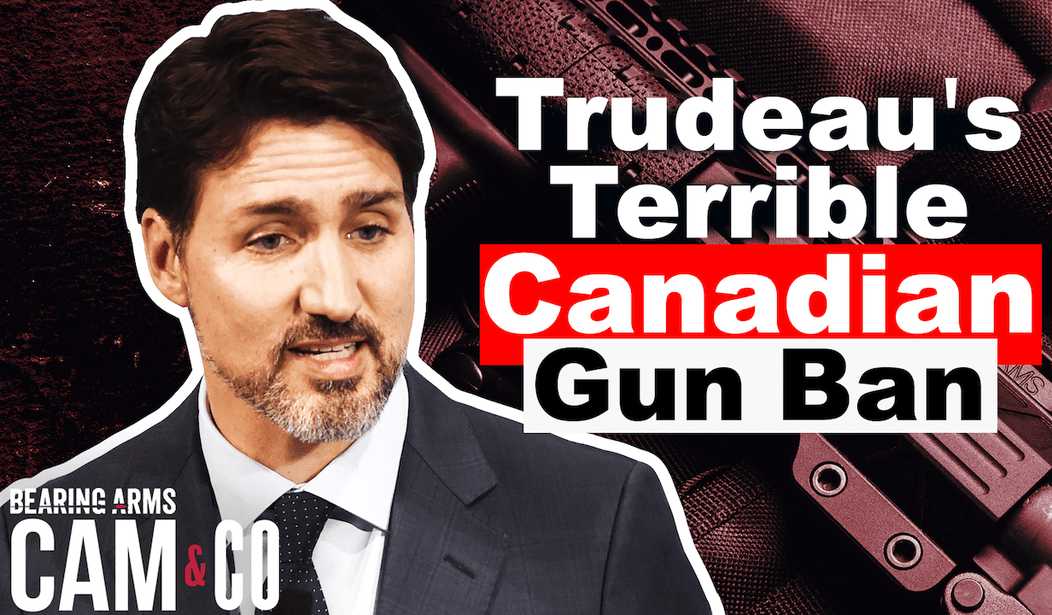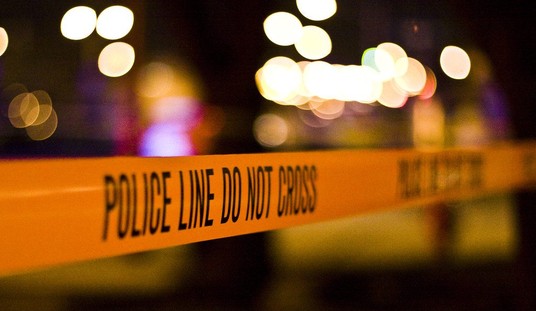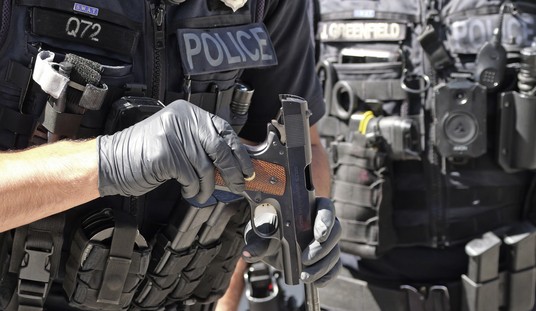Even though Prime Minister Justin Trudeau has officially submitted his gun ban legislation to Parliament in Canada, there are still some key details missing; including when the Canadian government will begin its compensated confiscation efforts and how much it will cost taxpayers. The clock is ticking, and has been since last May, when Trudeau banned more than 1,500 models of semi-automatic firearms in the country, but with the amnesty set to expire in April of 2022, those gun owners who want to comply with the ban have no idea how to do so.
That’s actually one of the smaller problems with the gun control legislation introduced this week, and on today’s Bearing Arms’ Cam & Co we delve into the bigger issues with Tony Bernardo, the executive director of the Canadian Institute for Legislative Action.
As Tony explains, gun control activists aren’t happy with Trudeau’s new legislation either, because it does not require the confiscation of every banned gun in Canada. Instead, gun owners have the option of keeping ahold of their now-banned guns, but they’re in essence being told they have to keep them in their gun safe forevermore. Taking a banned rifle to the range or even shooting it on private property is considered a criminal offense, but gun control activists were hoping for more.
Those activists are also disappointed that Trudeau’s gun ban doesn’t extend to handguns. Instead, the new bill allows cities and towns to ban handgun ownership at the local level. Bernardo says cities like Montreal and Toronto will absolutely ban handguns, but other cities like Alberta, Saskatoon, and Winnipeg aren’t expected to follow suit.
One of the biggest issues, according to Bernardo, is the “red flag” language contained within Trudeau’s new bill. The legislation, according to Bernardo’s analysis, would allow virtually anyone to initiate a red flag gun confiscation order, and police would be empowered under the law to search a home and seize property without a warrant.
While Canada doesn’t have a Fourth Amendment in its constitution, Bernardo says citizens do have the right to be secure in their property against unreasonable searches and seizures, but the legislation can’t be challenged in court unless and until someone actually becomes the subject of a red flag order.
In fact, Bernado doesn’t sound all that hopeful about the prospects of a legal challenge to any of the provisions in Trudeau’s new gun bill. Unlike the U.S. court system, even the lowest court can refuse to hear a lawsuit, and the cost of bringing a case to Canada’s Supreme Court could run into the millions of dollars.
Instead, Bernardo says the best chance to defeat or roll back these provisions is through the electoral process, and he says that elections could take place in just a few months. At the moment, polling doesn’t look great for Trudeau, in large part because of the disastrous rollout of the country’s COVID vaccination program.
According to the Canada Poll Tracker, an aggregation of all publicly available polling data, the Liberals hold a national lead of 5.5 percentage points over the Conservatives. That’s a solid advantage any party would be happy to take into election day.
Historically, however, it isn’t wide enough for a party to be confident of victory before a campaign has even started.
It isn’t even that big to begin with.
Since the 1945 federal election, the party ahead in polls conducted 30 to 60 days before an election was held, has averaged a lead of 11 percentage points over the second-place party. Trudeau’s lead over Erin O’Toole’s Conservatives is only about half that.
Sifting through the historical record suggests that a party ahead in the polls a month or two before voting day should want to have a lead of more than nine percentage points to be reasonably confident of winning. Parties with a lead at least that big have won the most seats in 13 of 14 elections.
While the COVID concerns are hurting Trudeau, his gun ban legislation won’t help him outside of Liberal strongholds. In fact, Bernardo believes that Conservatives are likely to make some gains in Parliament in the country’s midsection, where opposition to the Liberal gun control efforts is strong.
Hopefully the growing unpopularity of Trudeau is enough to defeat his Liberal party in the snap elections, whenever they’re called, because that may very well be the best chance to turn back the attack on legal gun owners and the civil rights of all Canadians.
We’ll be talking more with Bernado next week about the gun ban bill and how it’s playing in provinces across Canada, but in the meantime be sure to check out the entire conversation in the video window above.
Editor’s Note: Want to support Bearing Arms so we can tell the truth about Joe Biden and the Left’s radical gun control agenda? Join Bearing Arms VIP. Use the promo code GUNRIGHTS to get 25% off your membership.









Join the conversation as a VIP Member